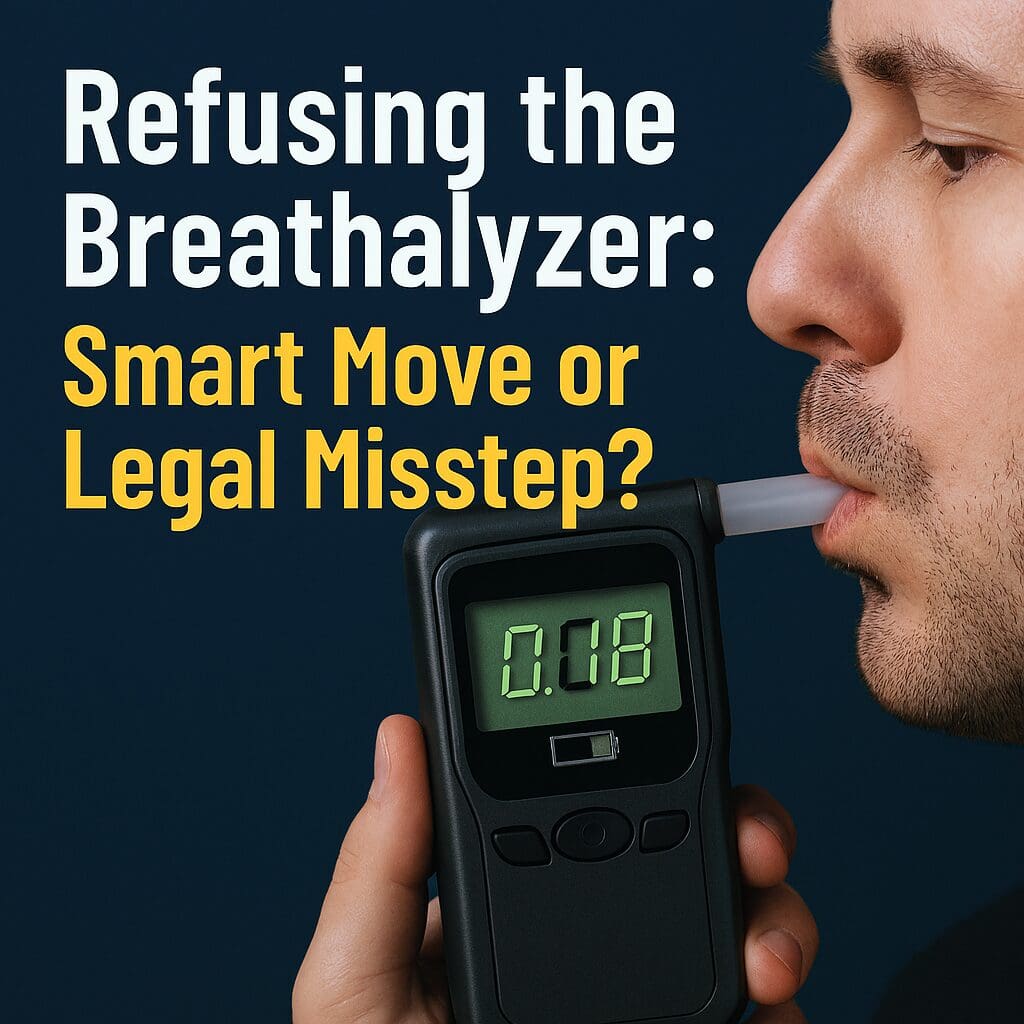Breathalyzer Refusal in South Carolina: What Drivers Need to Know
According to the National Highway Traffic Safety Administration (NHTSA),
roughly 25% of motorists in the United States refuse to take Breathalyzer
tests when directed to do so. This is a relatively large number, although
many people who refuse Breathalyzer tests do not understand the
consequences of their actions. Those who plan to refuse Breathalyzer
tests in the future should understand how this might affect their criminal
records and driving licenses. When is refusing a Breathalyzer test a smart
choice? What do South Carolina traffic laws say about refusing
Breathalyzer tests? Does it make more sense to accept the test instead?
These are questions drivers might want to raise during consultations with
their DUI Defense attorneys at Labbe Legal Services. Those who have
already refused Breathalyzer tests may also work with defense attorneys
to mitigate consequences. To learn more about the next potential steps,
consider dialing 833-DUI-JENN to speak to one of our experienced DUI
attorneys or 864-535-5187. We serve clients in Greenville, Spartanburg,
York, Union, Laurens, and Cherokee County.
South Carolina gives “Implied Consent” to Breathalyzer Tests
When South Carolina motorists get behind the wheel, they give their
“implied consent” to DUI testing. If South Carolina police officers stop a
motorist and ask them to perform a Breathalyzer test, it is as if the
motorist already agreed to comply. However, police cannot force
motorists to blow into Breathalyzer devices. Even if motorists give their
implied consent, they still have the right to refuse Breathalyzer
tests. Section 56-5-2950 of the South Carolina Code of Laws specifically
states that a motorist “does not have to take the test.” If a police officer
physically forces a motorist to blow into a Breathalyzer test, this would
likely be an example of illegal, excessive force.
The Six Month Driving Suspension for Test Refusal
Section 56-5-2950 states that if a motorist refuses a Breathalyzer test (or
any other DUI test), their license “must” be suspended for a minimum of
six months. This is one of the most daunting consequences for South
Carolina motorists, especially as many people rely on their vehicles for
work. Others need their licenses to attend medical appointments, pick up
their children from school, or care for senior dependents. The loss of a
driving license can affect many aspects of life, and some of the knock-on
consequences may be difficult to predict. Drivers should be aware of this
potential consequence before they refuse a Breathalyzer test. Those who
have already refused Breathalyzer tests in the past may be subject to
suspensions longer than six months.
Prosecutors Can Use Your Test Refusal Against You
Motorists should also know that if they refuse a Breathalyzer test, this
refusal may be used against them in a subsequent DUI case. Note that
refusing a breath test is not the same as remaining silent during an arrest
or prosecution. While the Fifth Amendment states that courts cannot
interpret silence as a sign of guilt, this does not extend to test refusals.
Due to implied consent laws, prosecutors may attempt to imply that a
motorist refused the test specifically because they were aware of their
own intoxication.
You May Need to Participate in the Ignition Interlock Program
Those who refuse Breathalyzer tests may opt to participate in the Ignition
Interlock Program. Although this is technically another consequence of
test refusal, it might be beneficial. If a motorist agrees to have an ignition
interlock device installed in their vehicle, they may be able to end their six-
month license suspension early. An experienced DUI defense attorney at
Labbe Legal Services could potentially pursue a temporary alcohol license
(TAL) on behalf of a motorist in this situation. This may allow South
Carolina residents to continue driving while waiting for their hearings. A
TAL could be vital as motorists attend work, medical appointments, and
carry out other “essential activities.” Note that motorists may not be able
to engage in recreational, non-essential driving with TALs.
Positive Consequences of Refusing Breathalyzer Tests
Not all consequences of test refusals are negative. This decision could be
positive in certain situations, especially if motorists also refuse blood or
urine tests after refusing Breathalyzer tests. In this case, there will be no
chemical evidence of intoxication. As a result, prosecutors would have to
rely only on the observations of the arresting officers to pursue a DUI
conviction. These observations are inherently subjective, and an
experienced defense attorney may be able to challenge them in court.
Test refusal also allows motorists to request “implied consent hearings,”
which may lead to temporary licenses within just a few weeks.
Many of these benefits revolve around the complete lack of chemical
evidence for intoxication. As a result, it makes sense to “commit” to
refusing tests after the first Breathalyzer refusal. If a motorist refuses the
Breathalyzer test but consents to subsequent blood or urine tests, they
may experience all of the disadvantages of the first refusal and none of
the advantages. Note that prosecutors may push for more severe
sentences for those who refuse Breathalyzer tests (as long as they
eventually secure convictions).
Is Refusing Breathalyzer Tests a Criminal Offense?
Drivers will not face criminal charges for refusing Breathalyzer tests in
South Carolina. Unlike other states, South Carolina has not made test
refusal a separate criminal offense. Test refusal is essentially a traffic
infraction – much like running a red light or speeding. That being said,
refusing a Breathalyzer test is often connected with a potential DUI
charge. In South Carolina, a first-time DUI with no aggravating
circumstances is usually a class B misdemeanor.
Learn More About Refusing Breathalyzer Tests With Labbe
Legal Services
Although online education may help motorists become aware of the
potential consequences of refusing Breathalyzer tests, a more active
defense strategy may be necessary for those already accused of this
traffic offense. Test refusal is not a criminal offense in South Carolina, but
it can affect driving rights, careers, and many other aspects of life. A test
refusal may only represent one legal issue amidst a larger DUI case, and a
DUI conviction can lead to much greater consequences. Each case is
slightly different, and it makes sense to create a defense strategy around
the unique aspects of each situation. Motorists may want to discuss their
specific circumstances with experienced Our DUI Defense attorneys are
licensed in South Carolina, North Carolina, District of Columbia, Florida,
Georgia and the District of Columbia. To continue this conversation please
contact our toll free number at 833-DUI-JENN or 864-535-5187. Our South
Carolina offices are conveniently located in Spartanburg.

